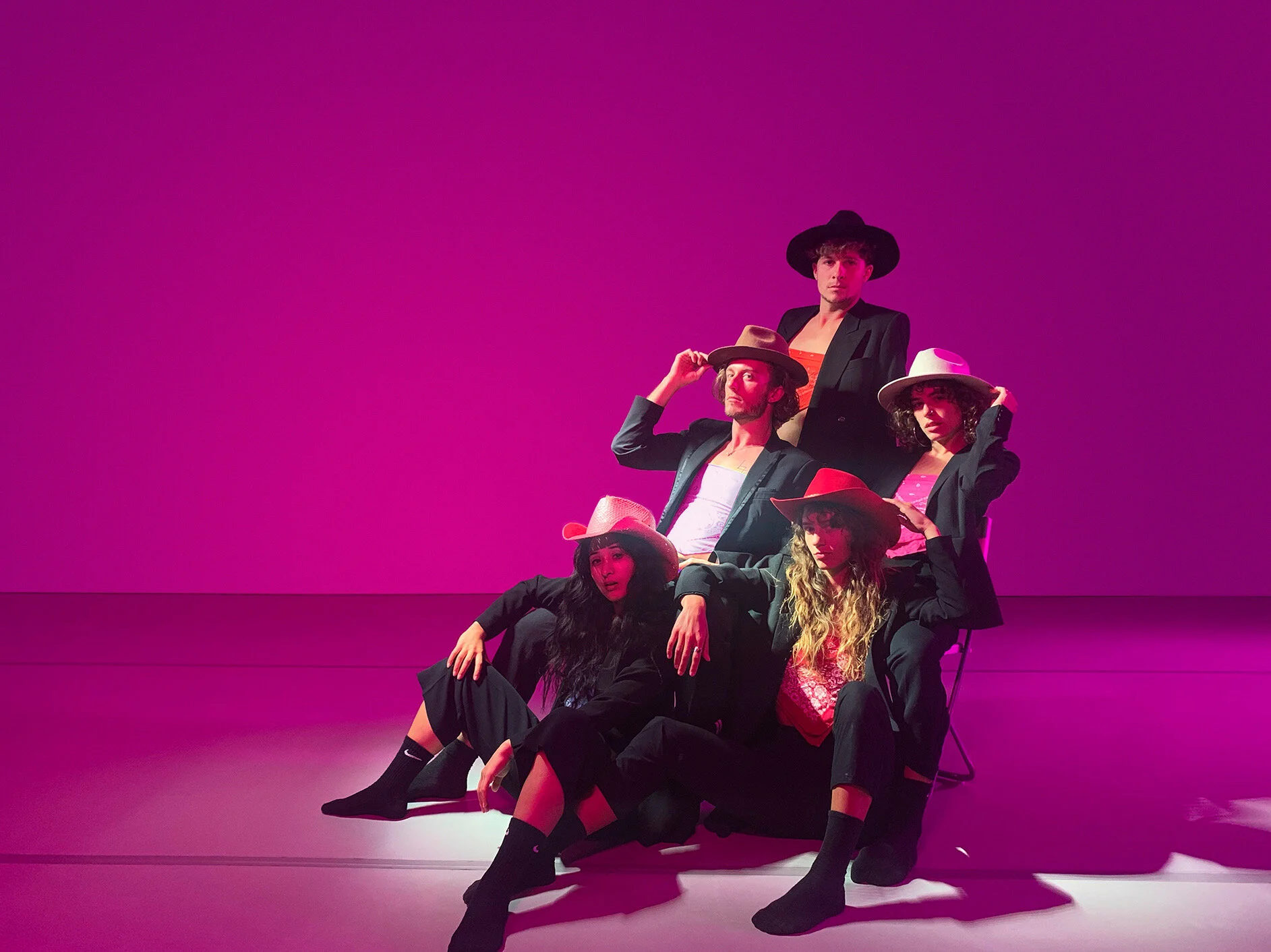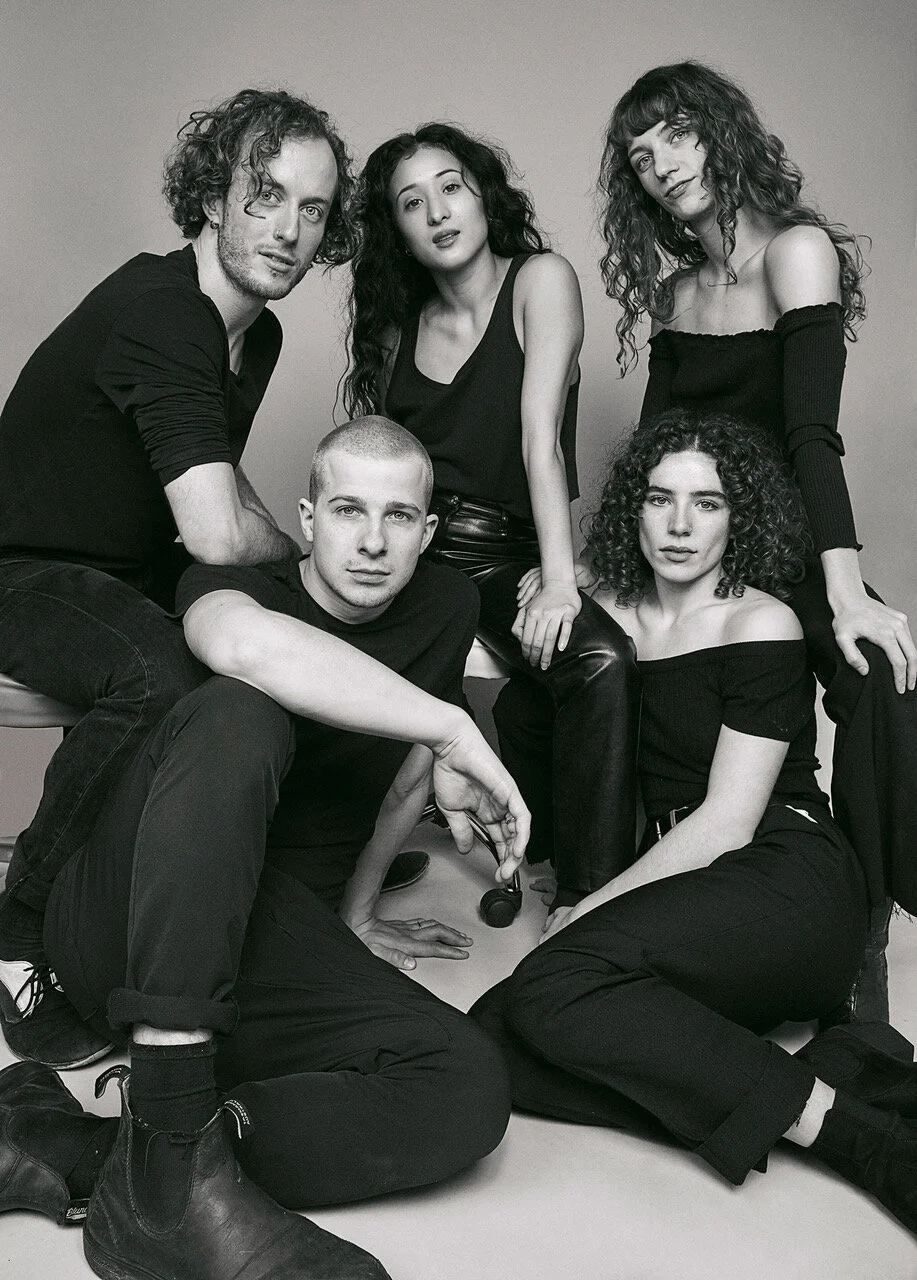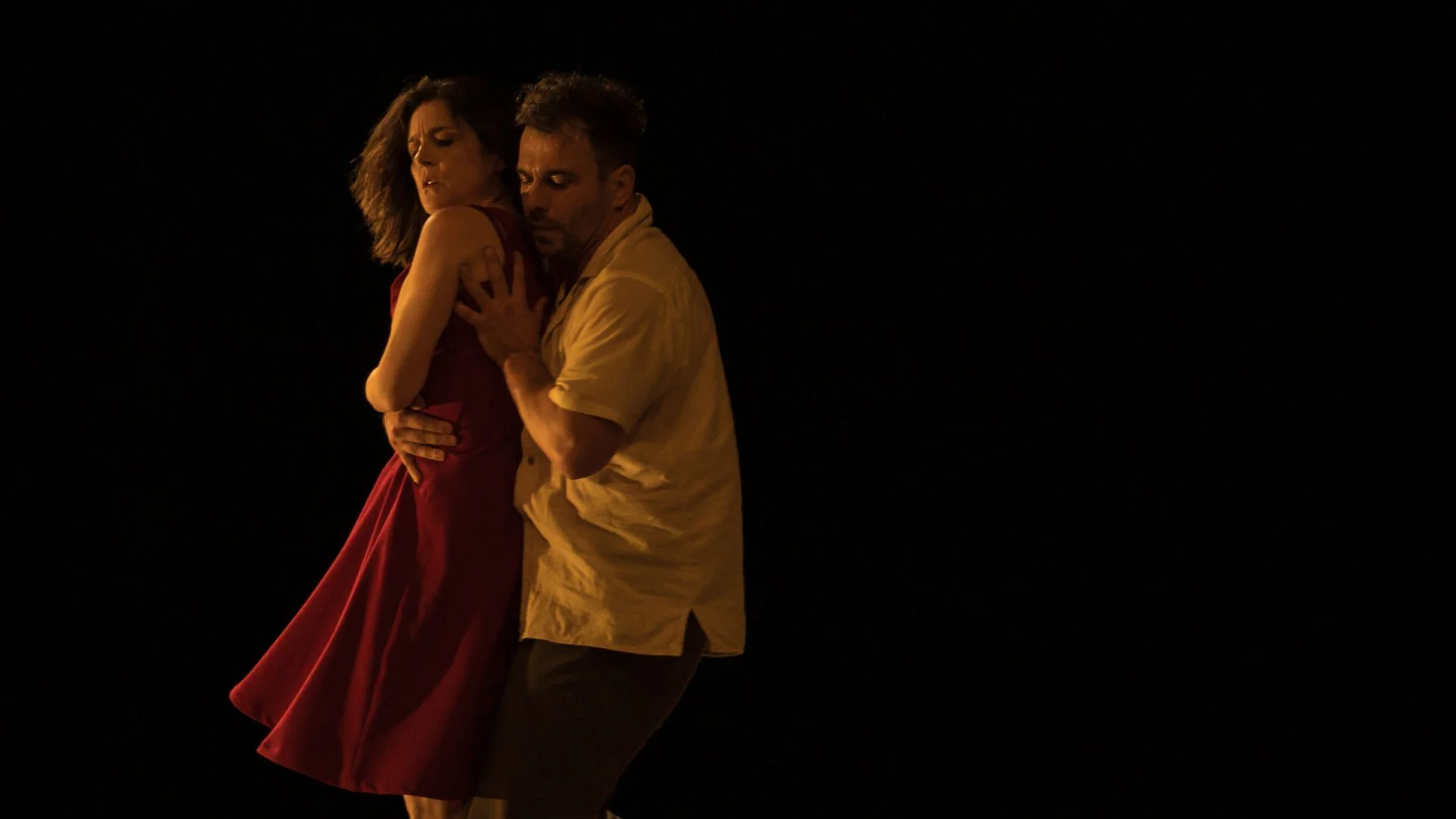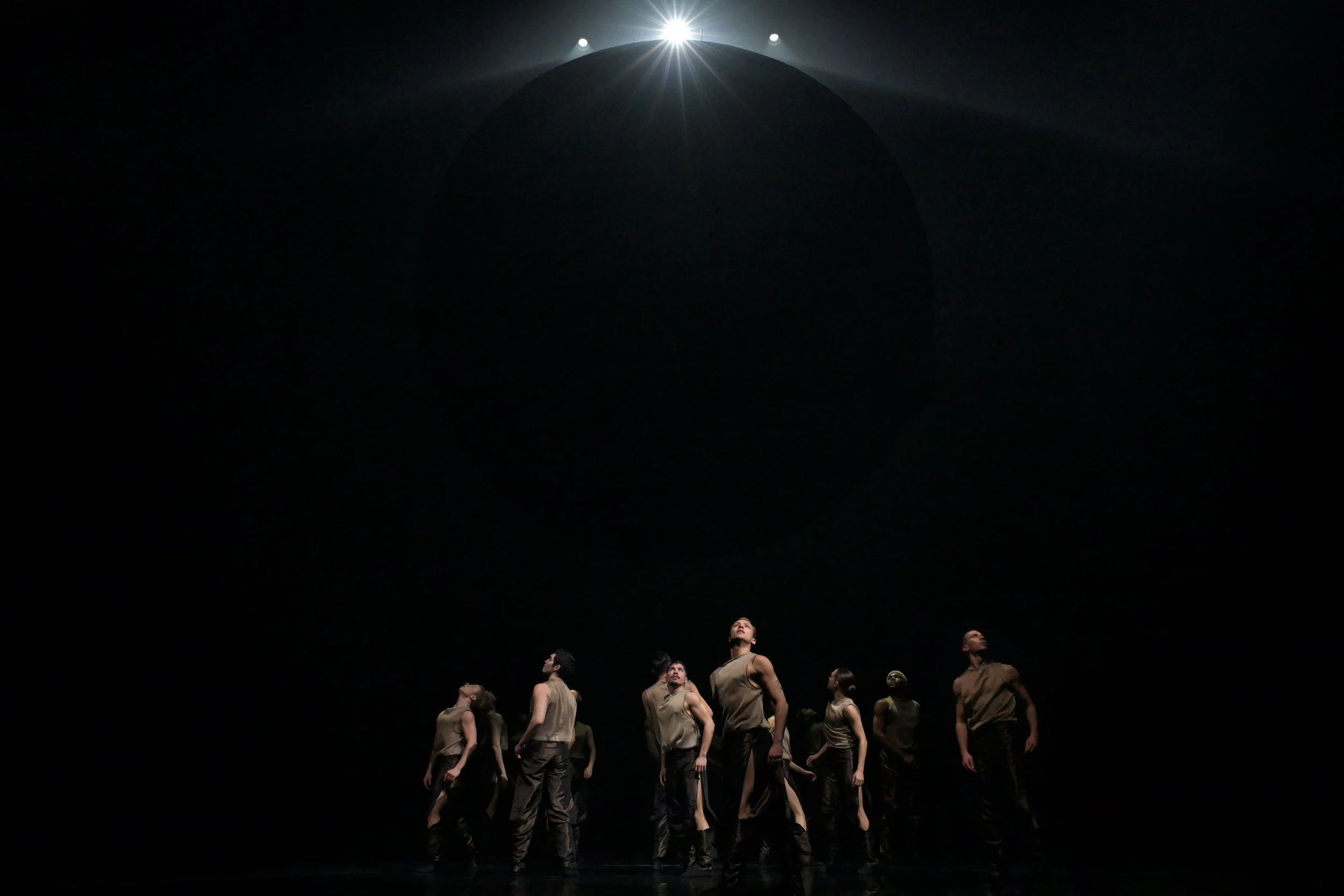CAMP to put on a true show at the Vancouver International Dance Festival
The artist collective is premiering WANTED, a cowboy-themed look at humanity’s extremes
CAMP is a dance-focused artist collective that isn’t afraid to go over the top.
CAMP performs WANTED at the Vancouver International Dance Festival on May 27 and 28 at 7 pm PDT and May 29 at 4 pm PDT. A live Q&A with CAMP follows the May 28 performance. Tickets are free/by donation.
ARTISTS HAVE COME up with all sorts of innovative ways to keep working amid the pandemic, whether by performing in actual bubbles or turning ensemble pieces into solos. Some of the options have required even greater commitment. In the case of CAMP, a Vancouver-based artist-run collective focused on dance that formed in early 2020, the push to continue creating called for packing tape and cardboard boxes.
With COVID-19 bringing the world to its knees, four of CAMP’s five members eventually moved in together, forming a bubble with the fifth, who lives at home.
“We kept our bubble really small between our two households, and we didn’t expand out of it,” explains Brenna Metzmeier. “I think that’s the reason we have gotten most of our opportunities lately, because it was hard to find groups that could work; everyone else was dispersed in their own bubbles. We’re able to be on stage together.”
One of the opportunities CAMP seized is its upcoming performance at Vancouver International Dance Festival. The group will present WANTED, a deep dive into the good and evil of humanity told through the lens of the cowboy.
Along with Metzmeier, the ensemble consists of Sarah Formosa, Ted Littlemore, Eowynn Enquist, and Isak Enquist. (The Enquists are married). Although the troupe is relatively new, its performers have already amassed a remarkable amount of experience, individually and collectively, working with some of B.C.’s brightest dancemakers, including Wen Wei Dance, 605 Company, FakeKnot, Raven Spirit Dance Company, Ne. Sans Opera & Dance, Joshua Beamish/MOVETHECOMPANY, Tara Cheyenne Performance, and Company Joe Ink, among many others.
They met while performing on Noam Gagnon’s Pathways, which he created for Vision Impure, his satellite company of Holy Body Tattoo. Gagnon is known for his sensual and highly physical work. The experience led to new growth for the CAMP five, plus a deeper understanding of camaraderie.
“It was so hard,” Littlemore says. “It was extremely physically challenging; it was such a test of limits. It was like, we went through a hard experience together so now we’ve come out stronger and closer together. We all remember it fondly; we had such a fun time doing the piece.”
Since forming, CAMP has been selected for multiple residencies including those at the Dance Centre’s 12 Minutes Max and Mascall Dance. A recent high point was a residency at Dance Victoria, where they were mentored by veteran dancer and choreographer Susan Elliott. One of the many lessons they left with was to take ownership of their identity and creative decisions. Rather than wait for a choreographer to come to them with work that suited their energy, they decided to do it themselves.
The ensemble’s name can be interpreted in many ways, one of them hinting indeed at the element of campiness. “We as a group are really interested in making dance that’s obviously a show and knows it’s a show and isn’t afraid to be over the top…and is all the things that feel indulgent for us as dancers and for audience members,” Littlemore says. “I think in a lot of ways that we bridge into pop-star territory….A lot of it is the fantasy experience where we take the bull by the horns and steer.”
The members of CAMP from top left: Ted Littlemore, Sarah Formosa, Eowynn Enquist, Brenna Metzmeier, and Isak Enquist. Photo by Richie Lubaton
Artifice, aesthetic, comedy, and layers of the dancers’ unique styles and characteristics will be on display in WANTED. The performers went with the cowboy culture as a jumping off point partly because of personal connections to it and partly because it just has so much to play with. Propaganda, delusion, self-preservation, escapism, nostalgia, and the dark truth behind the façade of the exalted Hollywood character all inform the work’s exploration of systemic evil.
Filming the production for the livestream added a whole new layer of complexity, learning, and excitement, with director of photography Russell Lee being very much involved in the creative process.
“We want it to feel extremely cinematic,” Enquist says. “We want there to be B-roll cuts and extreme lighting changes and a sense of narrative, of scene-to-scene immersion, so that the audiences feel like this is something they’re watching from within the room, not 50 feet back in auditorium. We wouldn’t have necessarily done this without COVID and it really lifts the show to a new and exciting place.”
Each of the CAMPers is drawn to dance for different reasons. Metzmeier has found over the years that the concepts and modalities taught in the studio apply equally well to her philosophies for everyday life. Isak Enquist, who discovered the form in his youth in Grand Forks, says the form allows ideas to be expressed in ways that are more descriptive and even more accurate than words. For Littlemore, who started playing piano as a child and is a long-time drag performer, performing provides a euphoric high as well as an academic curiosity. “There’s a lifelong avenue for growth while still being here to do kicks and turns in front audiences with big lights,” Littlemore says.
As for what it’s like for most of the ensemble to be living and working together, it’s not without its challenges, with work life blending into home life. But ultimately it’s all working out positively in and out of the rehearsal space.
Littlemore says the roommates have improved their problem-solving skills when it comes to personal interactions. “I keep saying COVID is like altitude training for relationships, where it’s so much more intense, everyone is more stressed, there are more problems, and you’re stuck together, and it either blows up or you work on it more and learn more about what each other needs,” he says. “I feel like every day we work on it more.”
Adds Enquist: “In trying to build a company in a non-hierarchical, collective working environment, living together is kind of an extension of that practice, of living in a social setting really informs the way we are trying to make work,” he says. “It means lot more checking in….If you can share a fridge together you can also share choreographic responsibility.”















